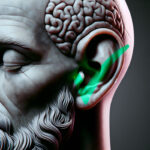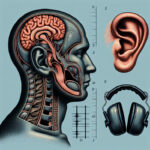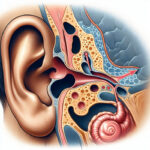This 30 Second Technique is Shockingly Effective
When Hearing Comes and Goes: Dealing with Fluctuating Hearing Loss

Understanding Fluctuating Hearing Loss
Hearing is a vital sense that connects us to the world, but what happens when it's inconsistent? Fluctuating hearing loss is a condition where an individual's hearing ability changes, often unpredictably. This variability can cause significant challenges and uncertainty. In this blog post, we'll delve into the intricacies of fluctuating hearing loss, exploring its causes, symptoms, and the impact it has on daily life, as well as the current treatments and management strategies available to those affected.
What is Fluctuating Hearing Loss?
Fluctuating hearing loss is characterized by periods of better or worse hearing sensitivity that can change over time. Unlike stable forms of hearing loss, which remain consistent, fluctuating hearing loss can improve or deteriorate without warning. This type of hearing impairment can occur in one or both ears and can affect individuals of any age. It can be particularly disconcerting as the unpredictability makes it difficult to adapt to and manage effectively.
Causes of Fluctuating Hearing Loss
The causes of fluctuating hearing loss are diverse and can include middle ear infections, fluid buildup, Meniere's disease, autoimmune disorders, and more. Sometimes, it can be a symptom of a larger underlying condition that affects the ear's ability to process sound. Environmental factors, such as exposure to loud noises or sudden changes in air pressure, can also contribute to temporary fluctuations in hearing capabilities.
Identifying the Signs and Symptoms
Recognizing the signs of fluctuating hearing loss is the first step toward getting help. Symptoms can include sudden difficulty in hearing, tinnitus (ringing in the ears), a feeling of fullness in the ear, and even dizziness or balance issues. These symptoms may come and go, and the degree of hearing loss can vary, making it challenging for individuals to realize they have a problem that requires attention.
Diagnosis of Fluctuating Hearing Loss
The Role of Audiometric Testing
Audiometric testing is crucial in diagnosing fluctuating hearing loss. Audiologists use a battery of tests, including pure tone audiometry and speech recognition assessments, to determine the type and degree of hearing loss. These tests must be conducted during different episodes of hearing fluctuation to accurately capture the variability of the condition.
The Importance of Timely Diagnosis
Timely diagnosis is essential for managing fluctuating hearing loss effectively. Early intervention can prevent further damage and help maintain quality of life. It's important for individuals who experience symptoms of hearing fluctuations to seek professional help promptly. This enables healthcare providers to identify potential causes and begin appropriate treatment as soon as possible.
Challenges in Detecting Fluctuating Patterns
One of the key challenges in diagnosing fluctuating hearing loss is the variable nature of the condition itself. Patients may not present with symptoms during their appointment, making it difficult for the audiologist to detect the problem. Detailed patient history and consistent monitoring over time can help overcome these diagnostic challenges.
Common Conditions Associated with Fluctuating Hearing Loss
Meniere's Disease and Hearing Fluctuations
Meniere's disease is a common cause of fluctuating hearing loss and is accompanied by vertigo, tinnitus, and ear fullness. It affects the inner ear and is thought to be related to an abnormal fluid buildup. The changes in hearing can be sudden and may progressively worsen, although periods of remission are also common.
Otosclerosis and Variable Hearing
Otosclerosis is a condition where abnormal bone growth in the middle ear causes hearing impairment. It can lead to fluctuating hearing loss as the bone growth can intermittently impede the movement of the ossicles, the tiny bones responsible for sound conduction. Otosclerosis can be progressive or can stabilize over time.
Autoimmune Inner Ear Disease (AIED)
AIED is a rare condition where the body's immune system mistakenly attacks the inner ear. This can lead to rapid, progressive, and fluctuating hearing loss. AIED is often treated aggressively with medications like steroids, but the response to treatment can vary greatly among individuals.
Impact on Daily Life
Communication Challenges
Fluctuating hearing loss can create significant communication barriers. The inconsistency in hearing makes it hard for individuals to rely on auditory cues, complicating conversations and leading to misunderstandings. It's crucial for those affected to develop strategies to enhance communication, such as using visual cues or assistive listening devices.
Social Implications
The unpredictability of fluctuating hearing loss can lead to withdrawal from social situations, as individuals may fear embarrassment or frustration. This social isolation can affect personal relationships and decrease overall quality of life. Being open about the condition and seeking accommodations can help mitigate these social challenges.
Coping with Uncertainty and Anxiety
Living with fluctuating hearing loss often means coping with uncertainty and anxiety. Not knowing when a hearing fluctuation might occur can be distressing. Affected individuals can benefit from seeking support and developing coping mechanisms that allow them to face the unpredictability with resilience.
Treatment Options for Fluctuating Hearing Loss
Medical Interventions
Medical interventions for fluctuating hearing loss depend on the underlying cause. Treatment can include medications like diuretics for Meniere's disease or steroids for AIED. In some cases, managing allergies or autoimmune conditions can also help stabilize hearing fluctuations.
Hearing Aids and Assistive Devices
Hearing aids and assistive devices can be configured to accommodate the changing needs of those with fluctuating hearing loss. Programmable hearing aids allow for adjustments as hearing levels change, providing flexibility and support. Other assistive devices like FM systems can also be beneficial.
The Potential of Surgery
For some conditions associated with fluctuating hearing loss, such as otosclerosis, surgery may be an option. Procedures like a stapedectomy can improve hearing by replacing the affected ossicles with prosthetic devices. However, surgery is not suitable for all cases and should be considered carefully.
Managing Fluctuating Hearing Loss
Lifestyle Modifications and Coping Strategies
Managing fluctuating hearing loss involves lifestyle modifications and the development of coping strategies. Stress management techniques can help individuals deal with the anxiety associated with hearing fluctuations. Additionally, avoiding exposure to loud noises and taking steps to maintain overall ear health are important preventative measures.
Hearing Conservation Techniques
Hearing conservation techniques are crucial for those with fluctuating hearing loss. Protecting the ears from loud environments, using earplugs, and following safe listening practices can help minimize the risk of further hearing damage. Regular check-ups with an audiologist are also recommended to monitor changes in hearing.
Fluctuating Hearing Loss and Mental Health
The Psychological Impact of Unpredictable Hearing
The psychological impact of fluctuating hearing loss cannot be overstated. The unpredictability can lead to stress, depression, and a sense of loss of control. Acknowledging these feelings and seeking help from mental health professionals can be a vital step in maintaining emotional well-being.
Accessing Support and Counseling
Accessing support and counseling services is important for those coping with fluctuating hearing loss. Professional counselors who specialize in hearing loss can provide coping strategies and emotional support. Support groups and online communities can also offer a sense of camaraderie and understanding.
Building a Supportive Network
Building a supportive network of friends, family, and professionals can make a significant difference for individuals with fluctuating hearing loss. Open communication about the condition and its effects can foster understanding and support, helping to reduce feelings of isolation and frustration.
Future Directions and Research
Emerging Therapies for Fluctuating Hearing Loss
Emerging therapies for fluctuating hearing loss, including gene therapy and advanced pharmaceuticals, offer hope for more effective treatments. Ongoing research is focused on understanding the underlying mechanisms of fluctuating hearing loss to develop targeted interventions that can provide relief and stability for sufferers.
The Role of Technology in Monitoring and Treatment
Advances in technology are playing an increasingly important role in the monitoring and treatment of fluctuating hearing loss. Wearable devices that track hearing levels and AI-powered hearing aids that adjust in real-time to the user's environment are examples of how technology can support those with fluctuating hearing conditions.
Advocacy for Better Understanding and Resources
Advocacy efforts are crucial for improving the understanding of fluctuating hearing loss and increasing resources for those affected. Raising awareness can lead to better funding for research, improved access to treatments, and more comprehensive support systems. As understanding grows, so too does the capacity to provide effective care and support.

Laura Henderson is a health enthusiast and has been interested in healthy and natural methods of eliminating tinnitus and restoring natural hearing for many years.










